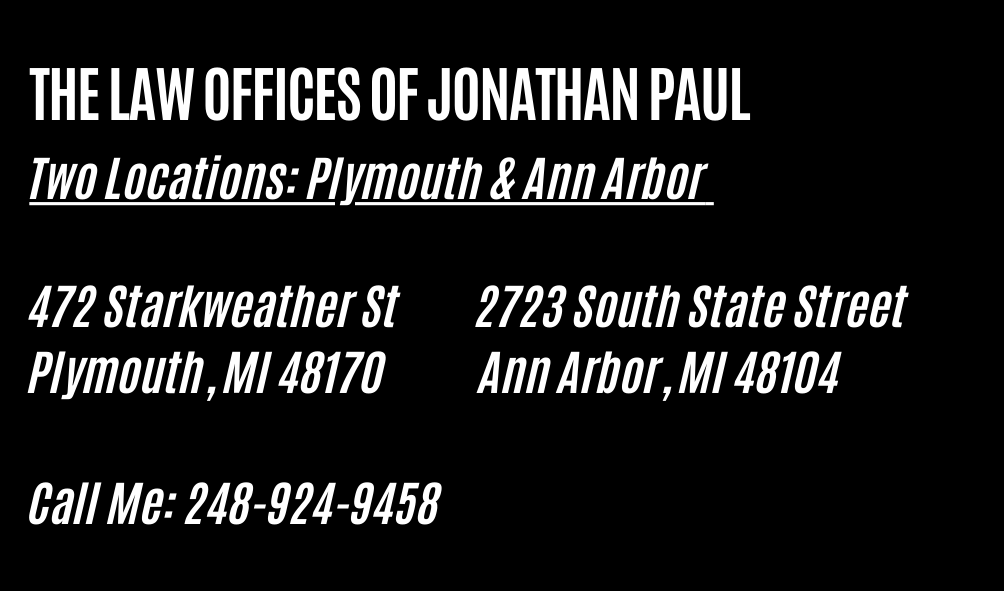
While it's always good to tell the truth, and I would never advise lying to anyone, especially a police officer in Michigan, you also don't need to volunteer information. If questioned by a police officer in Michigan whether or not drugs belong to you, just keep your mouth shut and exercise your constitutional right to shut up and not incriminate yourself. Worse yet, if a police officer asks whether or not there's any drugs in the car, unless the answer is no, simply ask for a lawyer, and say you're not making any statements.
In Michigan, you're not going to get a break because of your honesty. By admitting to drugs in the car, you're giving the police a right to search your entire vehicle when they didn't have that same right only minutes ago. If the police spot drugs around your body, you don't need to take responsibility for them. Many cases involve multiple people or distance between a person and the drugs; by admitting to ownership or possession, you've just given yourself a criminal record. There are only two elements to most drugs crimes; the prosecutor needs to prove possession of the drug and that the substance is actually an illegal drug; unless you've purchased some bogus drug, it's most likely going to test positive for an illegal drug, and you have zero if any defense. By keeping your mouth shut and not saying anything, the prosecutor needs to prove by circumstantial evidence that you're possessing the drugs; this is not an easy thing to do, because a lot of juries don't trust the police. You take away that "don't trust the police" mentality by admitting to the crime.
Every drug offense in Michigan is a felony other than possession of marijuana. Possession or use of cocaine, heroin or another type of controlled substance is a serious felony. The one saving grace in Michigan is if you're charged with certain drug offenses, and don't have a previous drug conviction, you may be eligible for 7411 under the Michigan Public Health Code, which allows for a deferral (keep conviction off record) for first time drug offenders. Speak to an experienced Michigan criminal defense attorney about your options.
Here is a complete guide to Michigan drug offenses.
In Michigan, you're not going to get a break because of your honesty. By admitting to drugs in the car, you're giving the police a right to search your entire vehicle when they didn't have that same right only minutes ago. If the police spot drugs around your body, you don't need to take responsibility for them. Many cases involve multiple people or distance between a person and the drugs; by admitting to ownership or possession, you've just given yourself a criminal record. There are only two elements to most drugs crimes; the prosecutor needs to prove possession of the drug and that the substance is actually an illegal drug; unless you've purchased some bogus drug, it's most likely going to test positive for an illegal drug, and you have zero if any defense. By keeping your mouth shut and not saying anything, the prosecutor needs to prove by circumstantial evidence that you're possessing the drugs; this is not an easy thing to do, because a lot of juries don't trust the police. You take away that "don't trust the police" mentality by admitting to the crime.
Every drug offense in Michigan is a felony other than possession of marijuana. Possession or use of cocaine, heroin or another type of controlled substance is a serious felony. The one saving grace in Michigan is if you're charged with certain drug offenses, and don't have a previous drug conviction, you may be eligible for 7411 under the Michigan Public Health Code, which allows for a deferral (keep conviction off record) for first time drug offenders. Speak to an experienced Michigan criminal defense attorney about your options.
Here is a complete guide to Michigan drug offenses.









